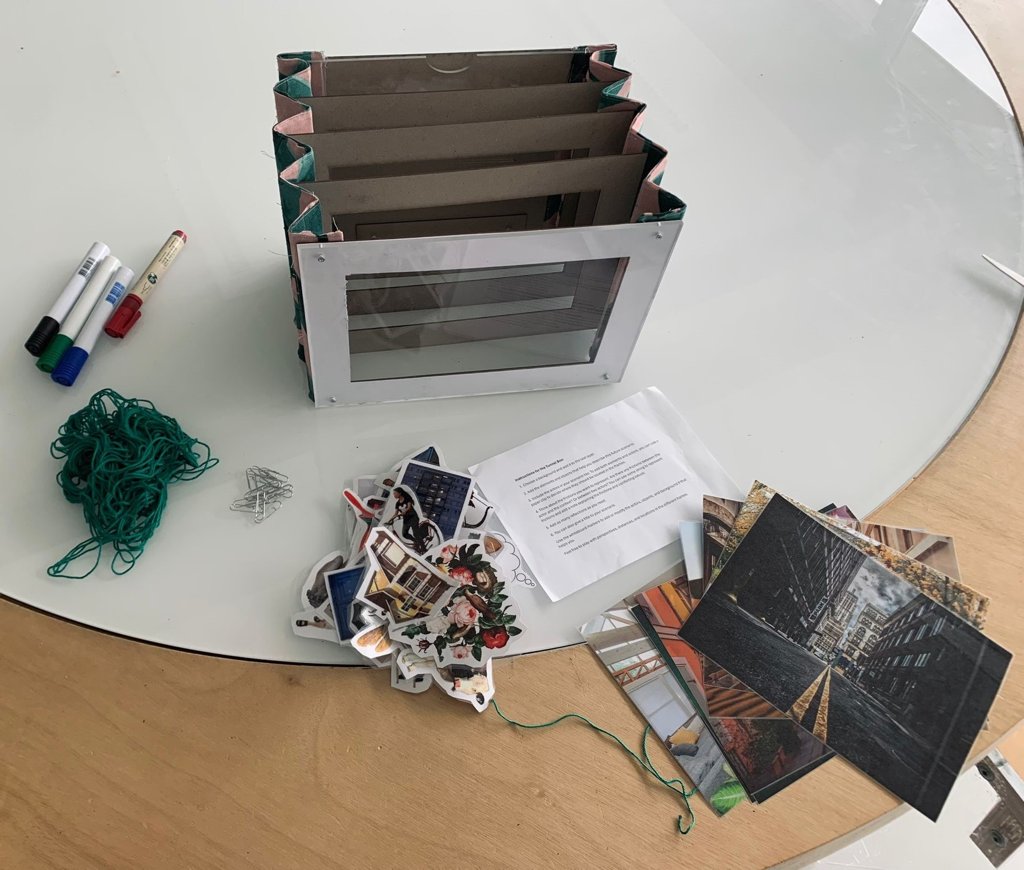Blanca Alonso de las Heras, Corelia Baibarac-Duignan, Julieta Matos Castaño
The project is set in the context of growing urban challenges and sustainability transitions. As cities worldwide grapple with environmental and societal issues, the need for inclusive and community-driven solutions becomes essential. The design problem addressed in this project is how to engage diverse community members in envisioning and shaping sustainable urban futures. By focusing on local contexts and everyday experiences, we seek to empower individuals to explore potential conflicts and synergies in sustainability transitions. The challenge lies in creating an accessible, intuitive tool that fosters community participation, inclusiveness, and critical thinking about urban development while addressing complex societal and environmental challenges.
The 'Tunnel Box' offers a unique, hands-on solution that transforms digital exploration into a tangible, interactive format. Designed as a suitcase-like mini-theatre stage, it allows participants to create and manipulate future urban scenarios using interchangeable elements such as backgrounds, characters, and props. This approach encourages active engagement by allowing users to explore potential frictions and tensions among diverse actors and values.
The design process involved collaboration between researchers and creative partners to prototype this analogue extension of the digital tool ‘Future Frictions’. Through intuitive design and simple instructions, participants can visualise conflicts and synergies, sparking creative discussions about sustainable futures while promoting collaboration and critical thinking.
The project is highly relevant to the theme of "Living Environments," as it engages diverse community members in envisioning urban sustainability through a collaborative and creative process. The 'Tunnel Box' promotes inclusiveness and shared responsibility in shaping urban futures, offering a platform where multiple perspectives can converge. The tool’s impact lies in its ability to make abstract concepts tangible and accessible, helping participants better understand sustainability challenges. However, potential limitations include the need for broader community involvement to capture diverse perspectives and the possible difficulty in scaling the project for larger urban contexts. Nonetheless, the project fosters critical conversations that can lead to more equitable and sustainable urban environments.




